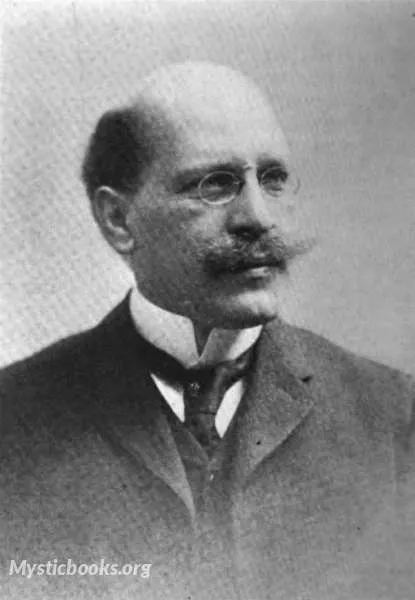
Timeline
Title
Country/Nationality
Hugo Munsterberg
Hugo Münsterberg was a German-American psychologist. He was one of the pioneers in applied psychology, extending his research and theories to industrial/organizational (I/O), legal, medical, clinical, educational and business settings. Münsterberg encountered immense turmoil with the outbreak of the First World War. Torn between his loyalty to the United States and his homeland, he often defended Germany's actions, attracting highly contrasting reactions.
Hugo Münsterberg was born in Danzig, Germany (now Gdansk, Poland), on June 1, 1863, to a merchant father and artist mother. The family had a great love of the arts, and Münsterberg was encouraged to explore music, literature, and art. When he was 12, his mother passed away. His mother's death marked a major change in the boy's life, changing him into a serious young man. Münsterberg wrote poetry and played the cello. In 1880, his father also passed away.
After graduating from the Gymnasium of Danzig in 1882, he enrolled at the University of Leipzig. While he initially began studying social psychology, Münsterberg later turned his interest to medicine. After meeting psychology pioneer Wilhelm Wundt, who encouraged him to become part of the psychology lab at the university, Münsterberg decided to devote himself to the study of psychology. He earned his Ph.D. in Psychology in 1885 under Wundt's tutelage and then earned a medical degree at the University of Heidelberg in 1887.
In 1887, Münsterberg accepted a position as a private tutor and lecturer at the University of Freiburg and later published a small volume entitled Activity of the Will. The book was criticized by Wundt, as well as psychologist Edward Titchener, who wrote, "Dr. Münsterberg has the fatal gift of writing easily—fatal especially in science...where accuracy is the one thing most needed."
The American psychologist William James, on the other hand, was greatly impressed by Münsterberg's ideas, especially because they supported James's own theory of emotion.
In 1891, Münsterberg became an assistant professor at the University of Leipzig. The same year, he attended the first International Congress of Psychology in Paris, France, where he met William James. The two continued to meet and correspond quite frequently, and in 1892, James asked Münsterberg to take charge of the psychology lab at Harvard.1 Due to his poor English-speaking skills at the time, he generally remained in the lab and published his work in German. James McKeen Cattell suggested that Münsterberg's lab was "the most important in America."
After a three-year period at the lab, Münsterberg was offered a permanent position. He declined the offer and chose to instead return to Europe. Two years later, he returned to Harvard, where he continued to work for the rest of his life. In 1898, he was elected president of the American Psychological Association.
On December 16, 1916, Hugo Münsterberg died suddenly of a massive cerebral hemorrhage, collapsing before he was able to finish delivering his opening sentence at a lecture at Radcliffe.
Books by Hugo Munsterberg

Psychotherapy
Talking about viewing the Ocean "If I take the attitude of appreciation, it would be absurd to say that this wave is composed of chemical elements which I do not see; and if I take the attitude of physical explanation, it would be equally absurd to d...

On the Witness Stand: Essays on Psychology and Crime
In 1908, Münsterberg published his controversial book On the Witness Stand (1908), which is a collection of magazine articles previously published by him where he discusses the many different psychological factors that can change a trial's outcome an...